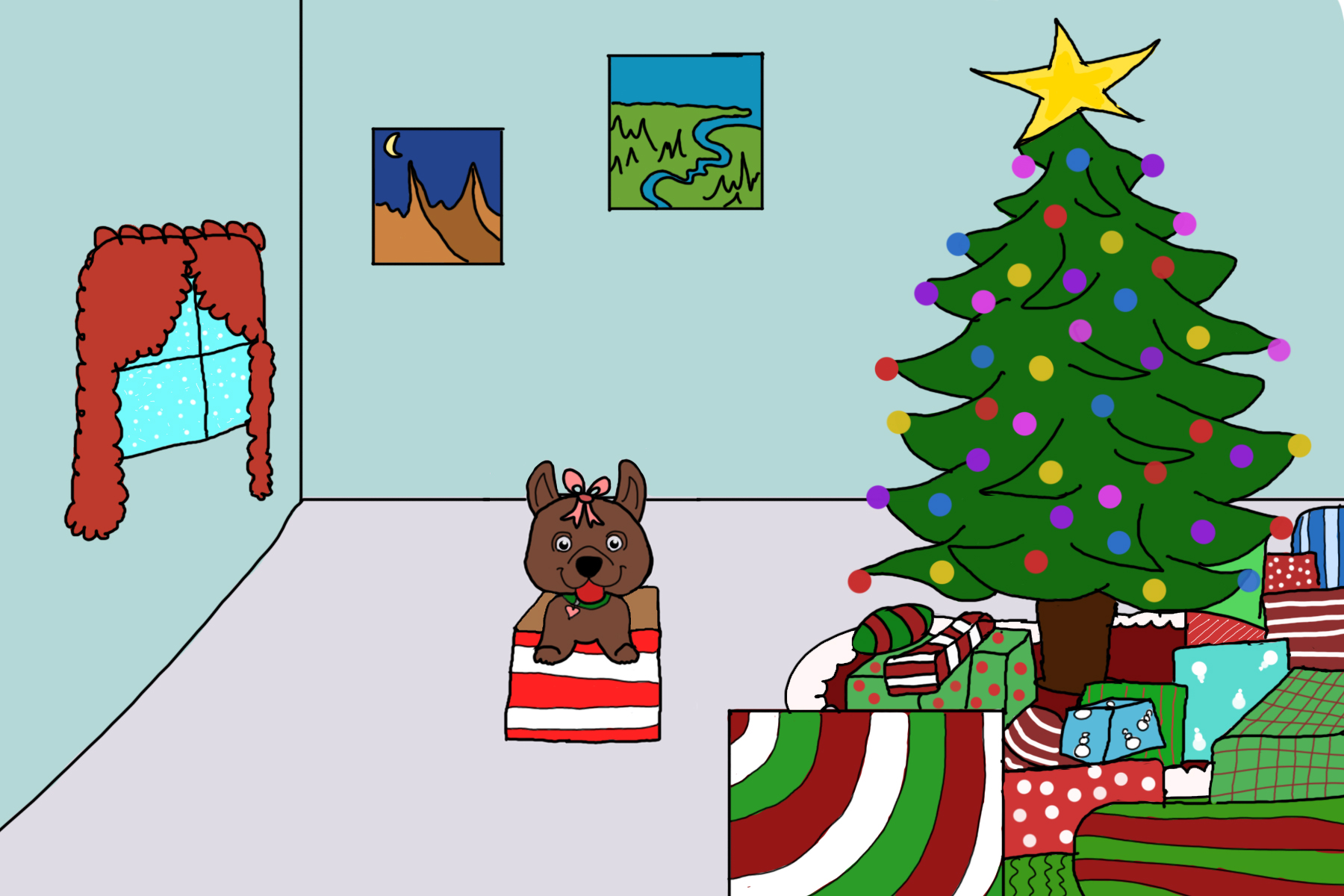What could be better than to walk downstairs on Christmas morning and hear one of your presents barking under the tree? For animal lovers, this scenario sounds like a dream, and for many, it’s also a reality. People love to give and receive animals as gifts around the holidays — specifically puppies.
The idea seems utterly romantic, especially because it’s a trope in many family movies: Buy the spouse (or kids) a puppy, plop a big red bow around its neck and set it under the tree. And while they might live happily ever after on the big screen, in reality, it’s less of a heartwarming story.
Those who gift pets definitely have good intentions; they want to bring the joy of an animal into a loved one’s life. However, this scenario doesn’t always end well, and it’s the pooch who ends up paying the consequences. According to PETA, many puppies that were wrapped and put under the tree will end up in a shelter during the coming year. In fact, local shelters report an annual influx of anywhere from 300 to 700 animals after the holidays are over.
Why does this happen? For one, the proud new owner of an adorable puppy didn’t exactly consent to receiving it. Perhaps they alluded to the idea or even specifically asked for a puppy for Christmas, but if they weren’t at the adoption center to pick out a specific dog, the lack of choice presents an immediate problem.
And even if you gifted the puppy to the whole family, you probably didn’t consider the time, energy and finances it takes to care for one, because you were too preoccupied with wowing your loved one. Once all the excitement dies down, you realize the puppy is as needy as it is cute, but likely not housetrained. A pet is a commitment, not a luxury item meant for its owner’s enjoyment.
Also, puppies inevitably grow up, and some pet owners do not seem to take this into consideration. Once a dog reaches adulthood, it’s no longer a cute, cuddly puppy, but a full-grown animal who needs affection, exercise and care. It will require scheduled check-ups, shots and dog food, all of which can be expensive, especially in the wake of holiday shopping. Don’t forget about the walks, trips to the park and the discovery of destroyed home furnishings. In short, it’s a lot of work to own a pet.
Furthermore, another reason why puppies get returned is that shelters encourage their adoption. As a way to clear them out before the end of the year, local shelters host adoption events, which is especially effective since they know that people are looking to gift animals.
Now, these events are well-intended, and it would obviously be great if all the animals were adopted, but seeking to accomplish this around the holidays is irresponsible. A home should be carefully chosen to ensure the pet will have a lifetime of happiness, otherwise many of the dogs will just be returned by spring.
However, despite the efforts of shelters, when people gift puppies, they are usually from a breeder or a store. More than likely, this is due to shelters owning more older mutts than “adorable young purebreds” who make for a more aesthetically pleasing gift. And while every dog needs a home, with the exception of local breeders, buying rather than adopting typically supports puppy mills. According to the American Society for the Prevention of Cruelty to Animals (ASPCA), only about 20% of adopted dogs originated from a shelter. So, if you must adopt a dog around the holidays, opt for the shelter instead of the store.
Granted, waiting until after the holidays to find your new pet is honestly your best bet. Aside from the decreased chance of returns, the holiday season is reason enough to hold off on adoption. Taking all factors into consideration, Christmas is far from the most opportune time to introduce a new animal into the home.
Think about it. The activity and excitement around the house might prove to be too overstimulating for a puppy and can make it hard to adjust to its home. Also, there are lots of dangerous decorations, such as lightbulbs and wrapping paper, that the pet could try to chew on, as well as poinsettias, which are poisonous to animals. You’d spend just as much time fawning over your pet as you would puppy-proofing the home. The holiday environment is not a safe one for an addition to the family.
Nevertheless, if gifting a pet is an opportunity you cannot pass up, consider taking the recipient to the adoption center themselves, so they can pick out the animal that best suits them.
“Animals are like humans in a sense where they develop personalities of their own,” said Angelina Saudeco of the Houston Humane Society. “That’s why we recommend you bring [the recipient] to the shelter, [because] you want to have that animal connect to the owner.”
On Christmas morning, wrap items like food bowls, toys and crates, or even a stuffed animal to serve as a promise of a new pet. Then, the recipient can still get excited for their four-legged friend-for-life without having it forced into their possession. Later, when they decide they are ready, the recipient can adopt a pet and take on the hefty responsibility at their discretion.
Pets are not tacky sweaters from grandma; you can’t simply try them on for a family photo and then donate them to Goodwill. They are a commitment. They are living beings. They are not Christmas gifts. Puppies deserve families who will love them forever, so wait until after the holidays to adopt your canine companion.
















